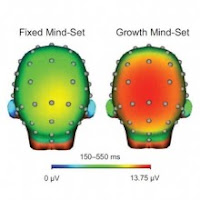What is a growth mindset not?

Perhaps a growth mindset sounds attractive. But perhaps it also sounds to good to be true. Therefore, let's have a look at what a growth mindset is and what it is not. Briefly put, a growth mindset is the belief that you can change your abilities though the investment of effective effort. People do not simply either have a growth mindset or a fixed mindset. Mindset is not like a switch with just two modes: fixed or growth. Instead, there are many degrees possible. It is better to think of mindset as a continuum than as a switch. Furthermore, mindset can be subject to fluctuations. Influences from our environment continuously act on how we think about the malleability of our abilities. In addition to that, it is normal to have different mindsets with respect to different topics. We may believe that we are able to develop certain abilities but may never improve other abilities.




